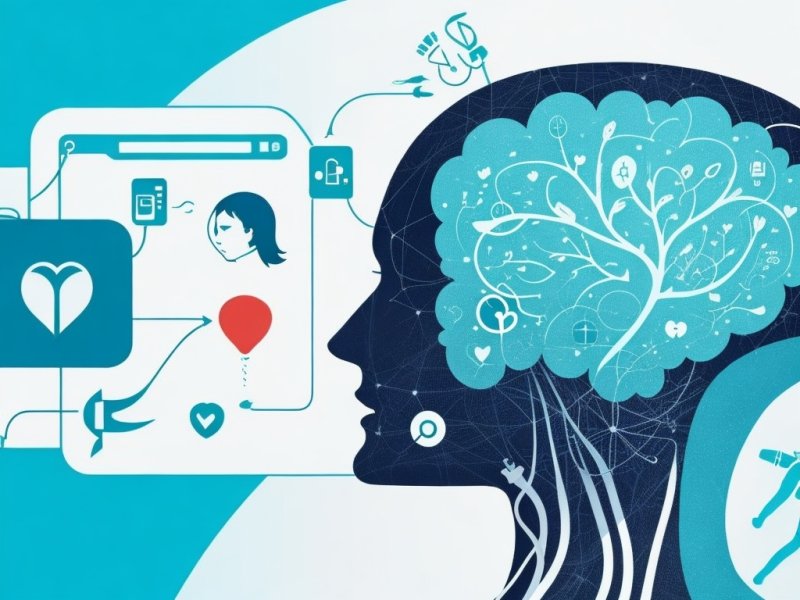
In today's fast-paced digital world, technology has permeated almost every aspect of our lives. From the way we work and socialize to how we seek medical care, technological advancements have revolutionized our daily routines. One of the most significant areas where technology has made a profound impact is mental health care. The integration of technology into mental health services has opened up new possibilities for diagnosis, treatment, and support, providing individuals with convenient and accessible solutions. In this blog, we will explore the exciting and transformative intersection of technology and mental health care in the digital age.
One of the most significant breakthroughs in the digital age is the rise of teletherapy and online counseling platforms. These services leverage video conferencing technology to connect mental health professionals with patients in the comfort of their own homes. The benefits are manifold - increased accessibility, reduced barriers like transportation issues, and the ability to reach underserved populations. Additionally, online counseling platforms often offer flexible scheduling options, making it easier for individuals with busy lifestyles to seek therapy.
The explosion of mobile apps has revolutionized the way we manage our mental health. From meditation and relaxation apps to mood tracking and cognitive-behavioral therapy tools, there is an app for almost every aspect of mental well-being. These applications empower users to take charge of their mental health and provide valuable insights into their emotions and thought patterns. Moreover, many apps are designed with gamification elements, making the journey to better mental health engaging and enjoyable.
Artificial Intelligence has shown remarkable potential in the field of mental health diagnosis. AI-powered chatbots and virtual assistants are being used to conduct preliminary assessments and offer immediate support to those in distress. Machine learning algorithms can analyze large datasets of patient information to detect patterns and predict potential mental health issues accurately. AI also holds promise in detecting suicidal tendencies and alerting caregivers, thus potentially saving lives.
Advancements in wearable technology have not only enhanced our fitness tracking but also have promising implications for mental health monitoring. These devices can track physiological markers such as heart rate, sleep patterns, and stress levels, providing users with insights into their mental well-being. Wearables also enable real-time monitoring, helping individuals identify triggers and manage their stress or anxiety effectively.
The internet has given rise to numerous online support communities and peer-to-peer networks focused on mental health. These platforms connect individuals who may be experiencing similar challenges, fostering a sense of belonging and understanding. Engaging in discussions with peers who have faced similar issues can be immensely comforting and educational. Additionally, online communities often share valuable coping strategies and resources, creating a network of support accessible 24/7.
Virtual reality (VR) technology is increasingly being integrated into mental health care. VR therapy creates immersive and controlled environments that allow individuals to confront and manage their fears, phobias, and anxieties in a safe space. It has proven particularly effective in treating post-traumatic stress disorder (PTSD) and phobias. Virtual reality therapy provides a novel and powerful way to expose patients to triggers while offering therapists valuable insights into their reactions and progress.
The intersection of technology and mental health care in the digital age has brought about a revolutionary shift in how we approach mental well-being. From the convenience of teletherapy and mobile apps to the potential of AI and virtual reality, technology is making mental health services more accessible, personalized, and effective. However, it is essential to strike a balance between human interaction and technological intervention. As technology continues to evolve, mental health professionals must stay informed and adapt their practices to leverage its benefits while maintaining the human touch that is integral to effective therapy. Embracing these innovations responsibly will undoubtedly pave the way for a brighter future for mental health care in the digital age.
Share This News